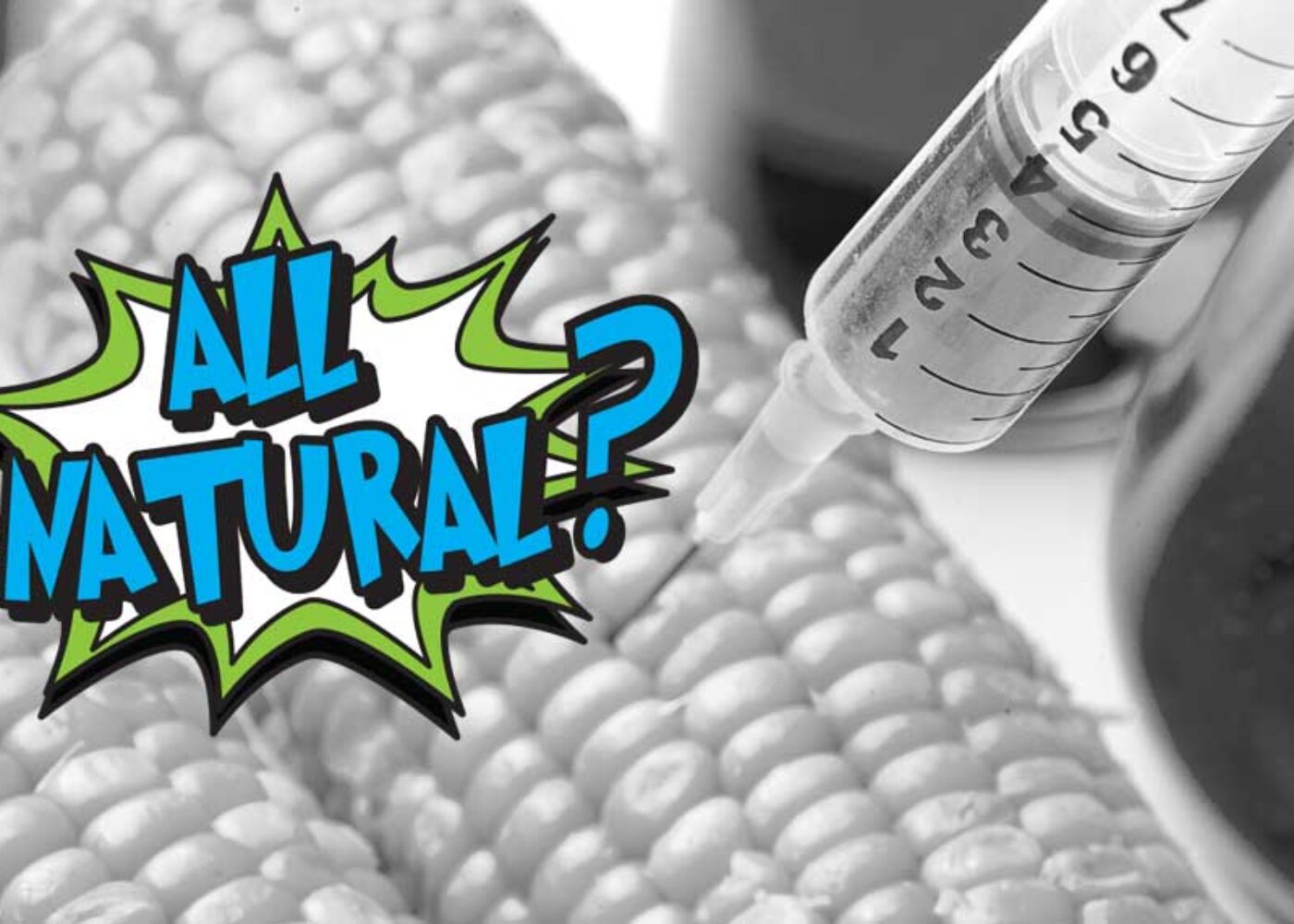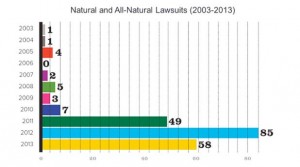Risky Business: Big Food Companies, Lawsuits and GMO Labeling

 Food companies using GMOs or genetically engineered ingredients in their products might want to think again.
Food companies using GMOs or genetically engineered ingredients in their products might want to think again.
Attorneys are now saying, “If you’re using GMOs and making “all-natural” claims, there’s a good chance you’ll get sued.”
Why? Consumers are concerned.
A global market research company conducted a random, national telephone survey of over 1,000 Americans, asking how they felt about these ingredients in their products and if they had concern. Their top question: Do GMOs cause cancer?
The answer? We just don’t know. The industry will say there is no evidence of harm, and to a certain extent they are right. There is no evidence. The FDA does not require mandatory premarket safety testing of these products and no long term human health studies have been conducted.
So not surprisingly, with the escalating rates of cancer, autism, Alzheimer’s and other conditions hammering on our families, consumers are beginning to opt out. They are exercising precaution they way eaters around the world have been doing.
And when they find out that these GMOs are still hiding in products that they thought were clean, they are suing food companies.
Lawsuits are piling up on this changing landscape of food, and attorneys are getting busy.
Not only has Naked Juice and Kashi cereal felt the heat, but a class action lawsuit against General Mills on their all-natural claims and GMOs can proceed, a judge has declared.
General Mills had argued to dismiss or stay the lawsuit since the FDA has never defined the term “natural,” but the judge suggests that it’s plausible that a reasonable consumer could be misled.
As lawsuits against the food industry for misleading claims continue, the National Law Review recently published an article about a national survey that identifies top consumer questions and concerns when it comes to using genetically engineered ingredients in food and potential legal opportunities on the horizon.
According to the site:
A global market research company conducted a random, national telephone survey of over 1,000 Americans, in which those surveyed were given a list of 23 questions, then asked: “The following are questions some people have asked about GMOs. Which of the following questions around the use of GMOs would you be most interested in having answered?“
The top 10 questions are:
- If GMOs cause cancer
- If GMOs are causing an increase in allergies
- If big companies are forcing farmers to grow GMOs
- If GMOs are increasing the price of food
- If GMOs are contaminating organic food crops
- Why long-term health studies aren’t conducted on GMO plants
- If GMOs are causing an increase in the use of pesticides
- Why GMO companies seem like they are so against labeling GMO foods
- If GMOs are contributing to the death of bees and butterflies
- If livestock eat genetically modified grain, will there be GMOs in my meat
It’s a wide open landscape for attorneys. So what’s a company to do? The fiduciary duty of the executives inside the food companies still using these ingredients is to protect shareholder returns.
According to attorney Jordan Grotzinger:
“What’s the takeway for companies selling products with GMOs? Pay attention to consumers’ questions. They’re your customers. They’re also your potential adversaries in litigation, if you don’t disclose arguably material facts. If appropriate, consider addressing issues about which your customers might be concerned in your advertising or labeling. Lawsuits over “all natural” products or products containing GMOs usually involve claims of deception, that the consumer didn’t know this or that about the product. You can get in front of this risk and minimize the chances that someone can accuse you of misleading them by disclosing facts about which they’re curious.”
Given the legal climate, you’d think U.S. companies would dump GMOs and replace them with non genetically engineered ingredients. It’s not like they’re reinventing the wheel here. It’s the way they formulate their products in other countries and it is also the way they formulated their products fifteen years ago, prior to the introduction of GMOs in the 1990s.
The question now, in light of this legal landscape and the risk that using unlabeled GMOs presents to their shareholders, is: At what point is it the fiduciary responsibility of the food companies to avoid this legal liability, dump GMOs and formulate their products without them?
The time, in light of the escalating rates of diseases we are seeing in the health of our loved ones, just might be now.





